
Lost husband at Azovstal, son couldn’t recognize her after captivity: Story of Alina Meleshko-Haburych from Azov regiment
Espreso TV, in partnership with "The Carpathian mineral waters," the producer of the mineral water "Karpatska Dzherelna," presents the project by Khrystyna Parubiy, titled "Women at War: A Look into the Future"
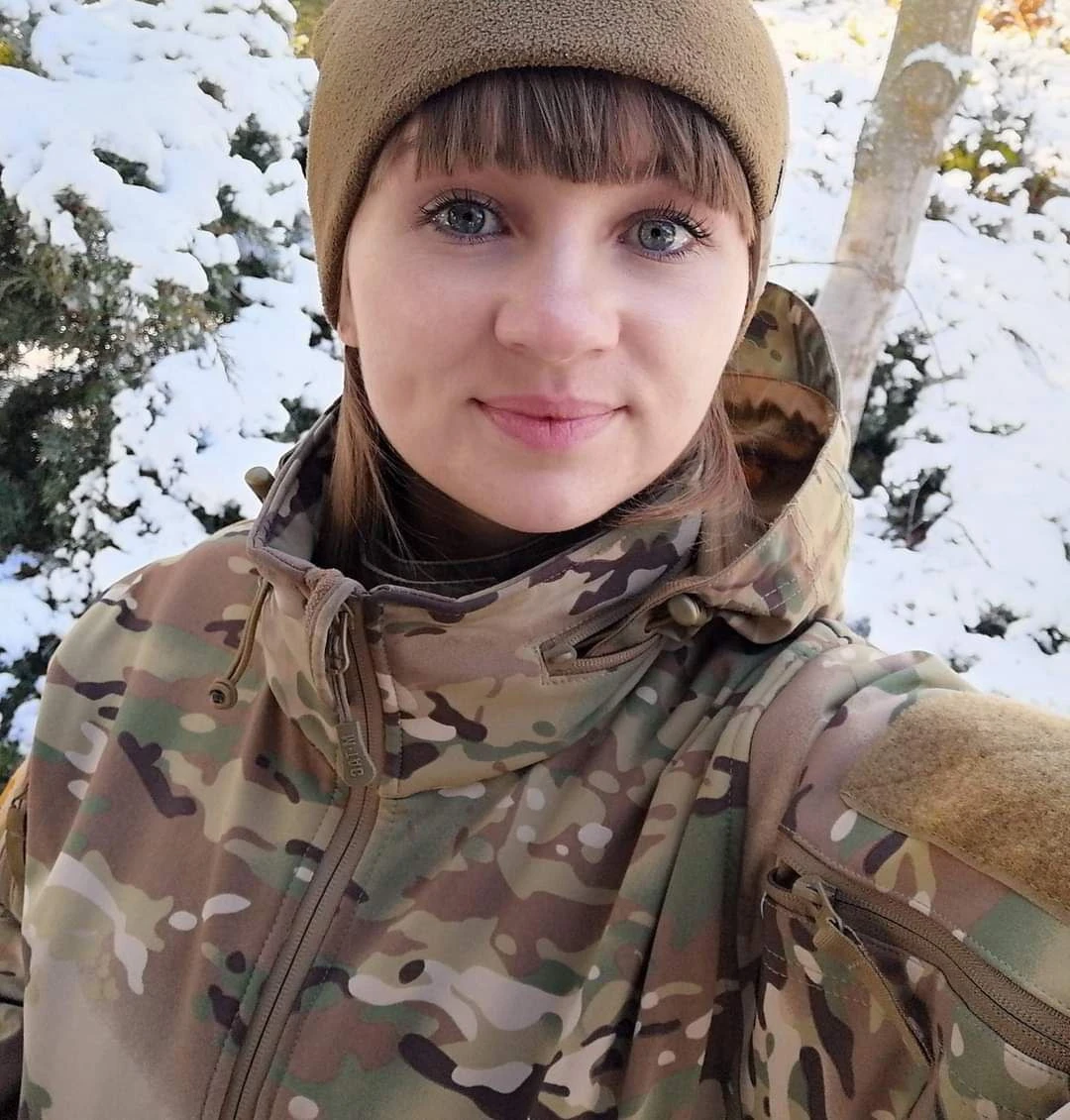
This is the story of Alina Meleshko-Haburych, call sign Ester, from the military regiment "Azov." She shared her experiences at Azovstal and her time in captivity with Espreso.
Alina Meleshko-Haburych, known as Ester, is a sergeant of material support in the repair company of the 12th Special Forces Brigade of "Azov" with the National Guard of Ukraine (NGU). She first dreamed of joining the army in 2012, while finishing school. "I wanted to join the army; I just felt it. For some reason, I wanted to. And in 2018, my dream came true. My friends said, 'Oh, you wanted it, and you did it,'" Alina recalls.
Before joining the military, Alina was on maternity leave. Once her son grew up, she decided to pursue her dream. She chose the Azov regiment because her husband was already serving there. Hearing his stories about his comrades and life in the regiment, she became deeply connected to it. For her, there were no other options.
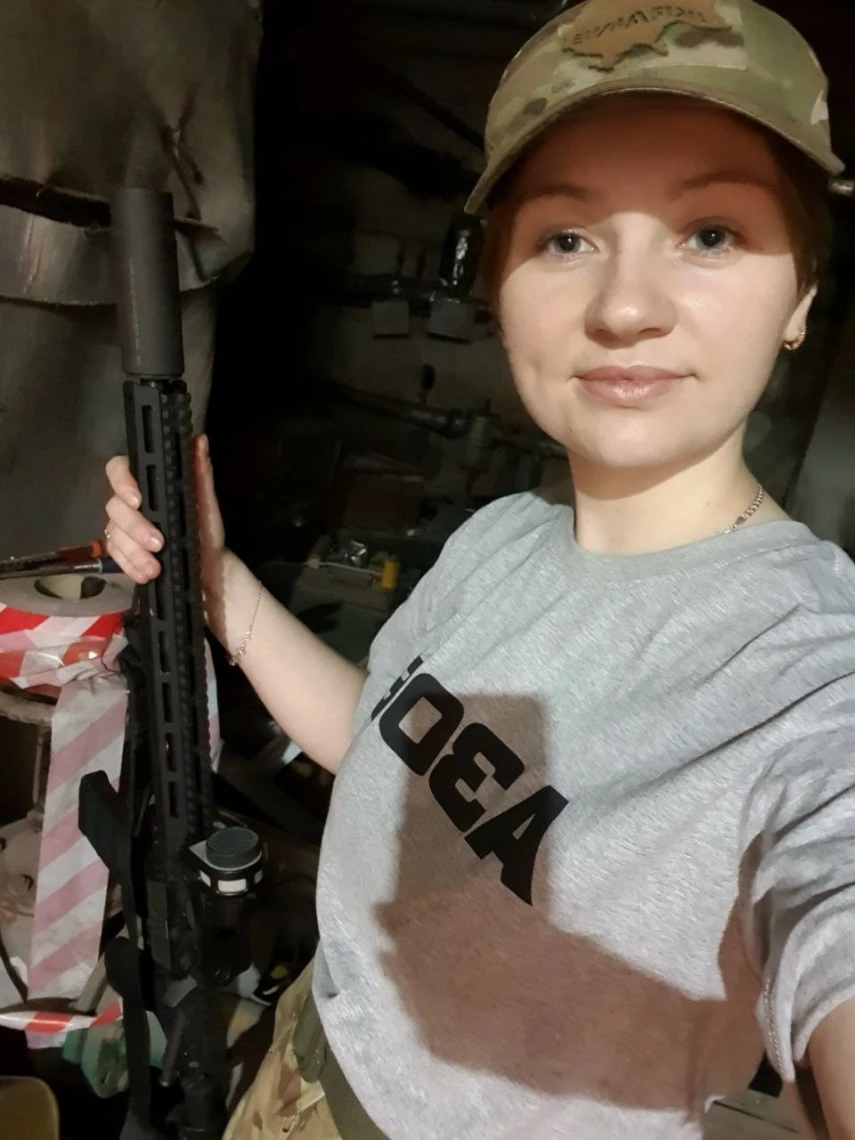
"I joined the army to be useful, especially since we’ve been at war since 2014," she explains. "I was looking for ways to contribute. I did paperwork and worked as a clerk. The hardest part was knowing a small child was waiting for me at home. Emotionally, that was the toughest."
Alina was stationed in Urzuf when she first joined the army. Her unit was based there, and at the time, clerks weren’t required to go to the combat zone, so she worked within the unit. But on February 24, 2022, when Russia launched a full-scale invasion of Ukraine, she went with her comrades to Azovstal.
"The city was relatively calm. Everything seemed quiet at Azovstal, too. But since then, I haven’t left the plant," Alina recalls. "We were in a bunker, holding the territory. In early March, they started shelling us. We were in the basement, and the ceiling began to crumble. The attacks reached the rear units. It became clear that we’d be there for a long time and that this wouldn’t end easily."
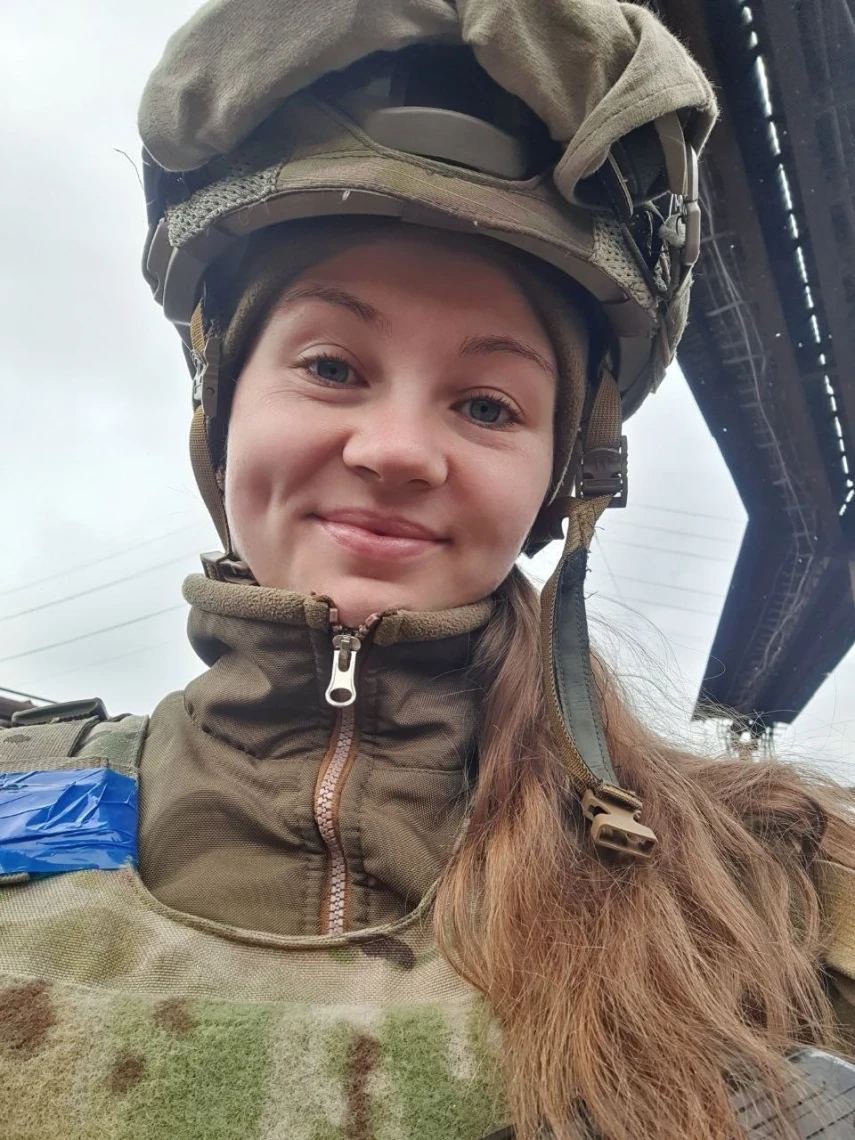
Alina was with her husband at Azovstal. At first, they were separated, but as Russian attacks intensified, her unit joined her husband's.
"We were constantly bombed, especially at night. We even knew when the bombing would start. We received commands, and naval artillery was constantly firing, along with airstrikes," Alina recalls. "We lost track of dates. No information was coming in, and our bunker had no internet. To contact our families, we had to go to another bunker or drive if we had a car."
At one point, Ukrainian helicopters began arriving at Azovstal with supplies.
"We were shocked. It felt like a chance for salvation," Alina says. "I first heard about the helicopters when visiting the bunker hospital. They were bringing aid, medicines, and even medical workers. But it was all very risky and kept secret to avoid information leaks. We even managed to save some of the wounded. We were hoping for more help."
But the thought of captivity was already on their minds, though not on the scale it eventually happened. They saw two possibilities: either help would arrive, and they'd leave Azovstal, or the Russians would break through, leading to death or captivity.
"We were told there were guarantors who promised our rescue. That we'd be exchanged in a few months. First, the dead would be taken out, then the wounded, and finally, the women," Alina recalls. "Before leaving, I messaged my family. I didn't say we were surrendering, just that I'd be out of touch for 3-4 months and gave them some instructions. But to some people, I admitted that my husband had died and asked them to help my parents and, most importantly, my son."
Then began Alina's captivity. Initially, the Azov prisoners were held in Olenivka for 24 hours at the pre-trial detention center. They arrived on May 19, and by the night of May 20, they were sent to a colony.
"There were inspections, mockery, humiliation, and ridicule. It was terrifying. Because you didn't know what you would do next. And if they found out you were from the Azov regiment, they focused on you even more. They assumed you had to be a sniper. No other options," Alina remembers about the first days of captivity. "It was shocking at first because you didn't understand the rules or how long you'd be there. We were constantly interrogated, humiliated, and had no rights. Thank God, I wasn't tormented in Olenivka, but some girls were forced to work, clean toilets, and were urinated on. Later, they made us work because if you didn't, you weren't allowed to shower."
After Olenivka, the prisoners were moved to another colony. The guards informed them they were going to Taganrog. At first, they thought they were being exchanged.
"They came in and said, 'Azov, get ready.' We clung to the hope that we were heading for an exchange through Taganrog. They loaded us into KamAZ trucks, blindfolded us, and tied our hands. We were piled on top of each other, then they threw our belongings at us and took us to Taganrog. When we arrived, they unloaded us with military dogs waiting. Some girls fainted. We were blindfolded and given strict rules to walk bent over with our backs hunched. Anyone who didn't follow the rules was punished."
Months later, Alina finally received good news: she was going home. But before the exchange, the Russian guards tried to intimidate them.
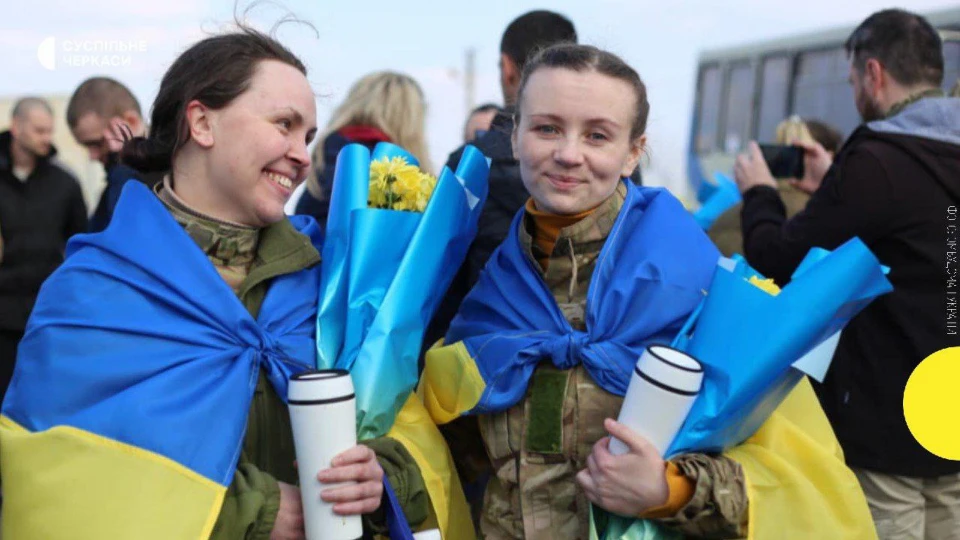
"When they told us to pack up, we immediately thought of an exchange. But when they loaded us into vehicles, blindfolded us, and drove us away, we panicked, thinking they were taking us to another prison. They had even threatened to shoot us before. Maybe they were joking, but it wasn't funny. We were hostages. They didn’t return our belongings — only the clothes we wore when we arrived. I had my husband's things that I managed to take, but I never got them back. We realized it was an exchange when they put us on buses and gave us numbers. We all prayed, hoping it was true. And then we heard the phrase: 'Lift your heads, open your eyes, straighten your shoulders, you are in Ukraine' — in Ukrainian. It was a shock. We opened our eyes in disbelief — was it real?"
Alina's first call was to her father. But she was devastated because her husband's body still hadn’t been returned from Azovstal. When she called her son, he didn’t recognize her.
"At first, I thought he was shy because he hadn't heard from me for so long. But then he said he didn’t recognize me and thought it was some cruel joke by the Russians. He told me, 'Mom, your voice has changed; you’ve changed,'" Alina shared.
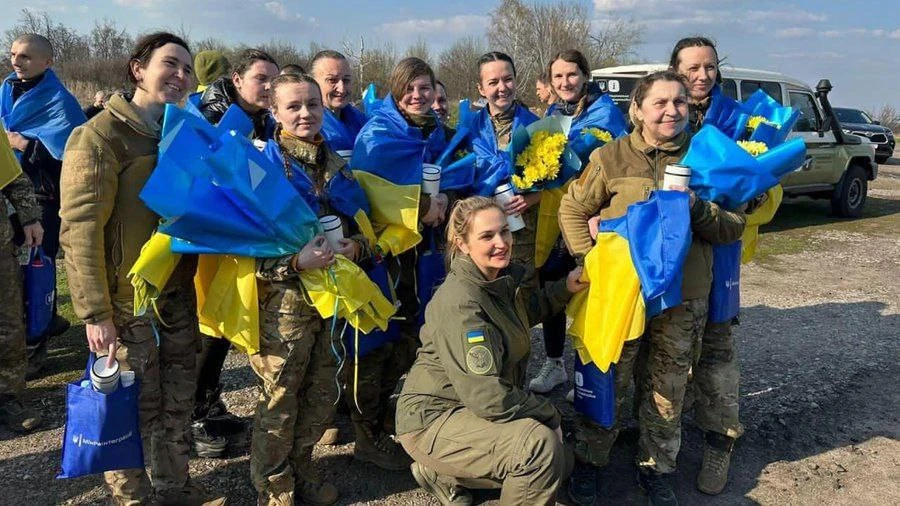
"Each of us must fight for victory and support the army if they are civilians. We must fight for our prisoners of war still in captivity. It's hard for them there. We must do everything to bring them home as soon as possible and ensure Ukraine's victory," Alina concluded.
- News













































